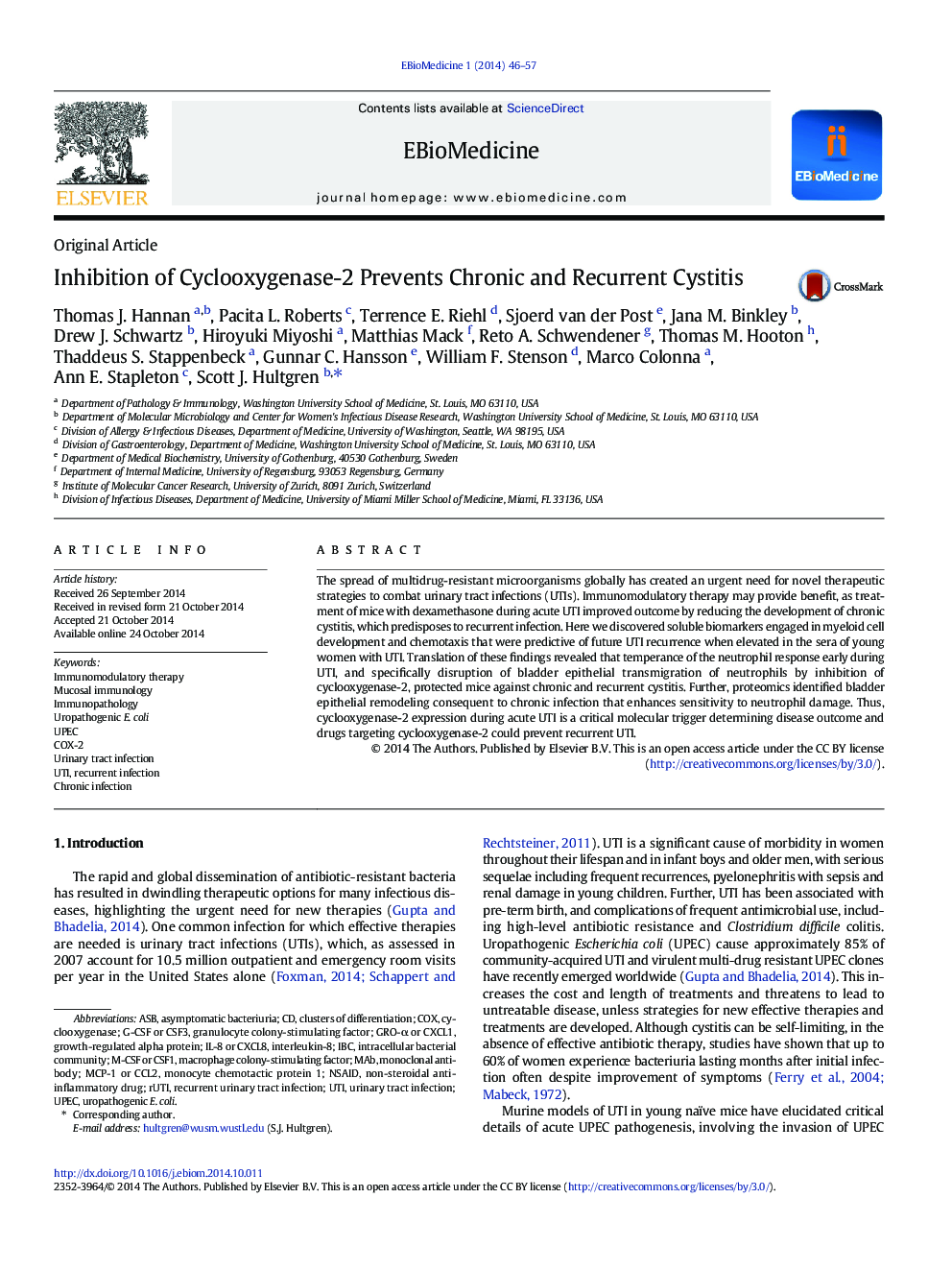| Article ID | Journal | Published Year | Pages | File Type |
|---|---|---|---|---|
| 2121148 | EBioMedicine | 2014 | 12 Pages |
•Discovery of serum biomarkers of recurrent UTI (rUTI) in women implicates enhanced myeloid cell responses.•Inhibition of cyclooxygenase-2 disrupts bladder epithelial transmigration by neutrophils and protects against rUTI in mice.•Bladder epithelial remodeling that occurs consequent to chronic infection enhances mucosal sensitivity to neutrophil damage.
The spread of multidrug-resistant microorganisms globally has created an urgent need for novel therapeutic strategies to combat urinary tract infections (UTIs). Immunomodulatory therapy may provide benefit, as treatment of mice with dexamethasone during acute UTI improved outcome by reducing the development of chronic cystitis, which predisposes to recurrent infection. Here we discovered soluble biomarkers engaged in myeloid cell development and chemotaxis that were predictive of future UTI recurrence when elevated in the sera of young women with UTI. Translation of these findings revealed that temperance of the neutrophil response early during UTI, and specifically disruption of bladder epithelial transmigration of neutrophils by inhibition of cyclooxygenase-2, protected mice against chronic and recurrent cystitis. Further, proteomics identified bladder epithelial remodeling consequent to chronic infection that enhances sensitivity to neutrophil damage. Thus, cyclooxygenase-2 expression during acute UTI is a critical molecular trigger determining disease outcome and drugs targeting cyclooxygenase-2 could prevent recurrent UTI.
Graphical abstractFigure optionsDownload full-size imageDownload as PowerPoint slide
